![]() The information provided by our expert should not constitute a diagnosis of your condition. Always consult a medical practitioner or healthcare provider for a formal diagnosis. By making use of this content, you agree that ConceiveEasy and the expert assume no liability.
The information provided by our expert should not constitute a diagnosis of your condition. Always consult a medical practitioner or healthcare provider for a formal diagnosis. By making use of this content, you agree that ConceiveEasy and the expert assume no liability.
Whenever a girl gets her first period. she will be irregular for a few years. Usually, about three or four years after her first period her cycles will begin to regulate. and she may not necessarily get her period every 28 days like the average woman. She may see a pattern of her cycles to come every 32 days, or 35 days, or maybe even shorter than 28 days. Claim Your 20 Free Pregnancy Tests – Click Here
In these cases, girls who have regular periods will be able to predict their cycles, and whenever or if they decide to start a family- then the fact that they have regular cycles is a clear indicator that they are ovulating at the same time during their cycles.
They will find that out whenever they begin to chart and get to know their cycles. The time right before ovulation is the fertile time in the cycle, and therefore, it is the time that pregnancy can be achieved.
However, there are some girls and women who never had their cycles regulate. They continue to have irregular periods, and they are the ones who are understandably concerned whether or not they can achieve a pregnancy whenever they are ready to start.
That is because they may not know when or if they are ovulating since their cycles are unpredictable. By the way, irregular cycles are not those cycles that vary by a few days each month. Irregular periods are cycles that are simply unpredictable.
Irregular periods can be defined as having a period on day 32, and then the next period on day 45, and then not getting a period for 2 months, and then having a 32-day cycle again.
It is quite likely that a woman who has the occasional 32-day cycle is ovulating during those cycles. However, on the 45 day cycle and the 2-month cycle that is unlikely the case. Therefore, a woman who has irregular cycles can technically get pregnant because there are several cycles in a year when she is ovulating.
However, the issue is, charting can be more of a challenge considering that there is a lack of predictability.

You may wonder what causes cycles in some women to never regulate. It is almost always due to hormonal imbalances, but those are caused by so many issues, and most of the time they are resolvable. Let’s check out the most common causes:
Thyroid disorder. If your thyroid is out of whack then that can cause your cycles to be irregular. In order to have your thyroid examined, you would have to see an endocrinologist to put you on the right treatment to correct the issue. If the treatment for the thyroid disorder works, then chances are your cycles will finally start to regulate.
Being Underweight. If you have a BMI of under 18, then that means you are extremely underweight which can be problematic for your hormones since they will not be functioning properly. Therefore, you may be ovulating occasionally, but not that often.
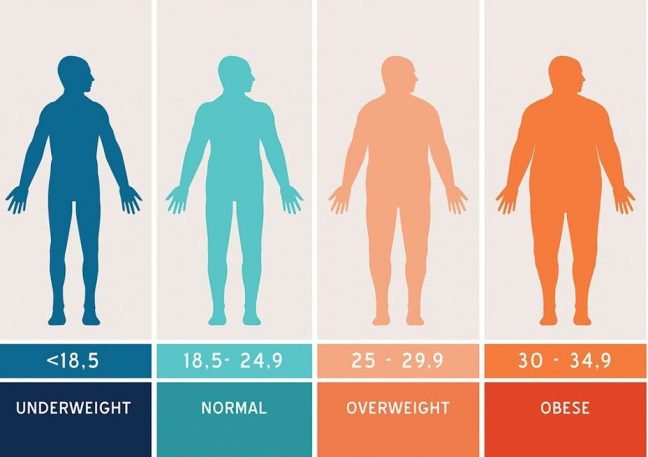
In order to correct the issue is to gain weight to have a BMI that is from 18 to 25, and your periods should regulate at that point. But you want to eat foods that are fertility friendly in order to gain weight in a healthy way, and that will be discussed later.
Being Obese. If you are overweight which means you have a BMI of 26 to 30, that should not have much effect on your cycle, as your hormones will still likely be functioning properly.
However, if you have a BMI that is over 30, then you are obese and you will find yourself having irregular cycles because your hormones are out of whack from the excess weight. In order to regulate your cycles, you will need to lose weight but will want to eat foods that are fertility friendly, which again will be discussed later.
Weight Changes. If you lose or gain a considerable amount of weight over a period of time, you will have irregular periods due to the drastic weight changes. That will wreak havoc on your hormones and your cycles will regulate again once your body is used to the weight change.
For instance, if you are obese but have been losing weight over a period of time, you will find that your cycles will be all over the map. But once your body is used to the weight changes, you may find that your periods become more predictable.
Eating Disorders. Whether you have anorexia, bulimia or a compulsive eating disorder, your body is not receiving proper nutrition and is going through periods of physical stress. That will also have a negative impact on your reproductive system and hormones.
In fact, if you have anorexia, you may stop getting periods altogether since there is no body fat to help regulate hormones. The only remedy for eating disorders to get psychological help, and then with work you can get healthy again.
Getting Too Much Exercise. If you are an athlete and overtraining your body, you may not get periods because your body is under too much stress from exercising too much. Therefore, your body is conserving energy which has a negative impact on your reproductive system and hormones.
In order to help your body return to normal, you will want to ease up on the exercising, and take half hour brisk walks a day for 5 days a week. Exercise is important but you want to do so in moderation in order to help your reproductive system function properly.
Perimenopause. This is a period before being menopausal and it can last for 10 years or even more. Your body is losing its egg reserve which means you will have irregular cycles, some will be ovulatory and some will be anovulatory, and may even skip some months. Your hormones are erratic at this point. Not much can be done to help at this point since this is a natural occurrence.
Breastfeeding. If you are breastfeeding, your prolactin hormone is up which can cause your cycles to be irregular. You can always stop breastfeeding in order to get your cycles to regulate.
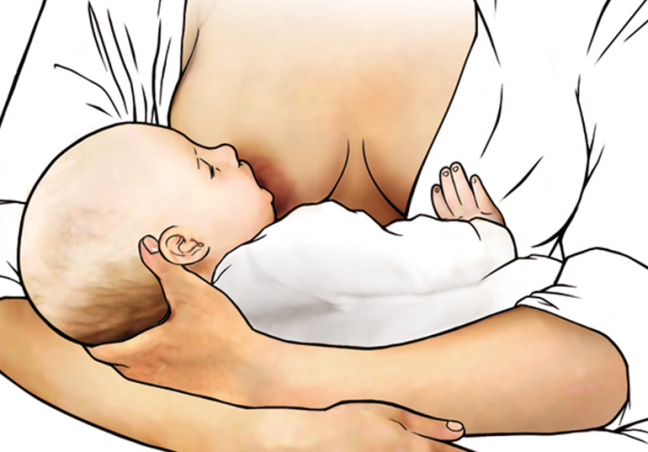
Polycystic Ovarian Syndrome (PCOS). This is a common cause for irregular periods due to the fact that there are high levels of testosterone in the system.
Other symptoms of PCOS are obesity, acne, and facial hair, and many women with PCOS do struggle to conceive due to the fact that they do not ovulate on a regular basis, and many do miscarry if they do get pregnant due to hormone imbalances. However, the good news is that there is help for women with PCOS.
Premature Ovarian Failure (POF). If a woman has irregular periods and stops having periods before the age of 40, then nothing can be done to help since the egg reserve has depleted and the egg quality has been poor.
Premature ovarian failure can be a result of autoimmune conditions, women who have been on chemotherapy and radiation therapy or mosaic Turner’s Syndrome. The only way that a woman who had gone through POF can get pregnant is from a donated egg.
Stress. If you are under a considerable amount of stress, that will cause your cycles to be irregular due to the stress to your overall health. You will need to learn stress management techniques in order to restore your body.
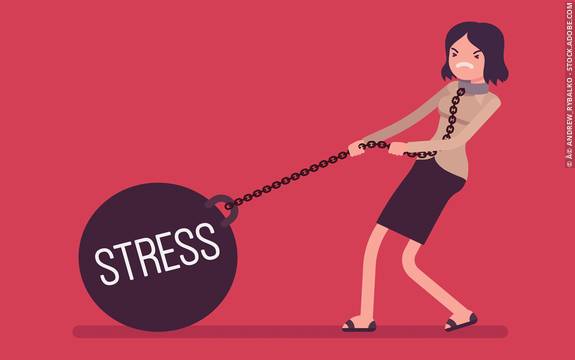
That all said, in most cases if you have irregular periods, with the exception of POF you can get pregnant! However, in order to achieve a pregnancy due to the other causes, the root of the cause needs to be properly addressed and treated accordingly. Even women who are going through perimenopause can technically still get pregnant.
That said, the most important thing is to make sure that you are eating fertility friendly foods because these foods will not only help regulate your cycles so they can become more predictable. However, they will increase your odds of conceiving.
Let’s look at what foods to eat, and by the way, if you are making weight changes purposely in order to get to a healthy weight- these are the foods to stick with!

If you are looking to gain weight in a healthy way, and to lose weight by eating the right foods, and to help regulate hormone imbalances associated with PCOS- these are the foods to focus on eating to improve your cycles and fertility:
Oily Fish. These types of fish such as salmon, mackerel, herring and lake trout are an excellent source of proteins and healthy fats which include Omega 3 fatty acids. These types of fish are not high in mercury levels so they are safe to consume.

These fats are crucial for hormonal balance and can help normalize menstruation. Omega 3 fatty acids are excellent for reducing inflammation and can ease menstrual pain. Avocados and eggs are not fish, but they are full of excellent fatty acids and proteins as well as this food should be included in the diet.
Whole Grains. Swap the refined carbs such as white bread, white rice and pasta, candies, and potato chips with whole grain bread, whole grain pasta, brown rice, and eat non-buttered popcorn instead of chips. Whole grains are rich in fiber, protein and B vitamins which you need to to help normalize your hormones and cycles.
They also will provide you the energy you need without causing your blood sugar and insulin levels to spike which is a common problem that women with PCOS face. Sweets and refined carbs and all junk food cause a spike in blood sugar and insulin which will cause irregular periods and anovulation.
Fruits and Vegetables. These foods are crucial to help keep your hormones in check and are full of antioxidants, Vitamin C, and beta-carotene which are good to regulate periods. Also, most fruits and vegetables, especially green leafy vegetables are an excellent source of folate which you need to consume for the development of your unborn baby.
The best foods to help regulate menstruation are yams, sweet potatoes, carrots, mango, sweet peppers, and cantaloupe. Berries and citrus fruits are excellent for Vitamin C. Stay away from artificial fruit juices which will cause sugar levels to spike.

Seeds and Legumes. Beans, sunflower seeds, and flax seeds are an excellent source of fiber and have healthy fats and proteins to help regulate the menstrual cycle.
Lean Meats. Poultry, lean pork, and lean beef are an excellent source of protein and iron that you need in order to keep your hormones and reproductive system healthy and functional.
Full-fat dairy. Stick with whole-milk, full-fat yogurt, and cheese. If you are losing weight, these foods in moderation are fine and are important. Dairy fat helps improve the reproductive system and helps normalize the cycle.
Also, be sure to get no more than 200 mg of caffeine a day. So one cup of coffee is fine. Put a tight limit on the sweets and ditch smoking, alcohol and drugs.
If you are eating these foods and adopting good habits, and your cycles are still unpredictable, then you may need help from the right dosage of Clomid. Especially if you have PCOS.
Once your cycles begin to normalize, you will need to chart and see what you are ovulating as that will become predictable too (don’t attempt to chart until you get your periods to normalize). You can check the consistency of your cervical mucus. If you have egg-white cervical mucus and it is abundant, that is a sign that you are very close to ovulating and that is your fertile time.
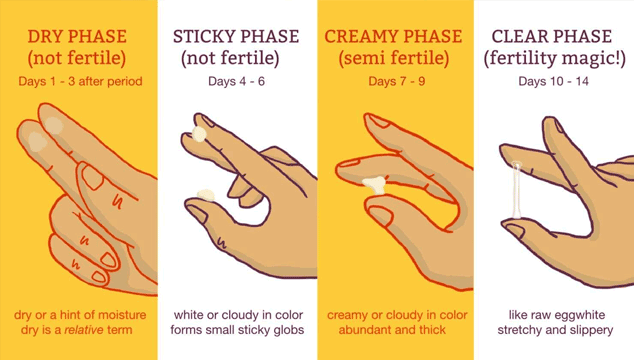
That means if your normal cycle is about 32 days, then you will be ovulating around day 17 to 18. Around day 15 you will start to have that kind of cervical mucus that has that consistency. At other times of your cycle when you are not fertile, your cervical mucus will be scant and sticky and cloudy.
So that all said, in most cases with the exception of going through POF, you can get pregnant if you have irregular cycles. However, irregular periods are a sign that something is not working properly, and once you have that addressed and help yourself become healthier- then your cycles will normalize and you will be able to predict when you ovulate to maximize your chances of conceiving.
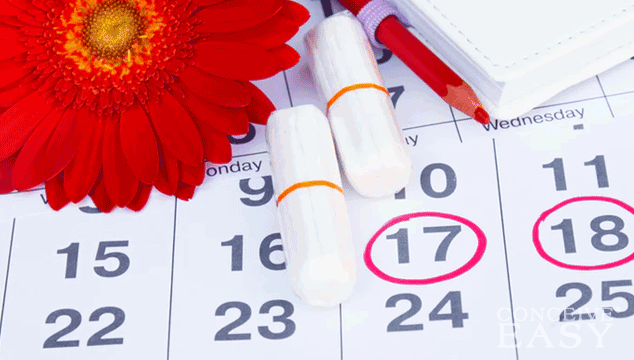









Comments